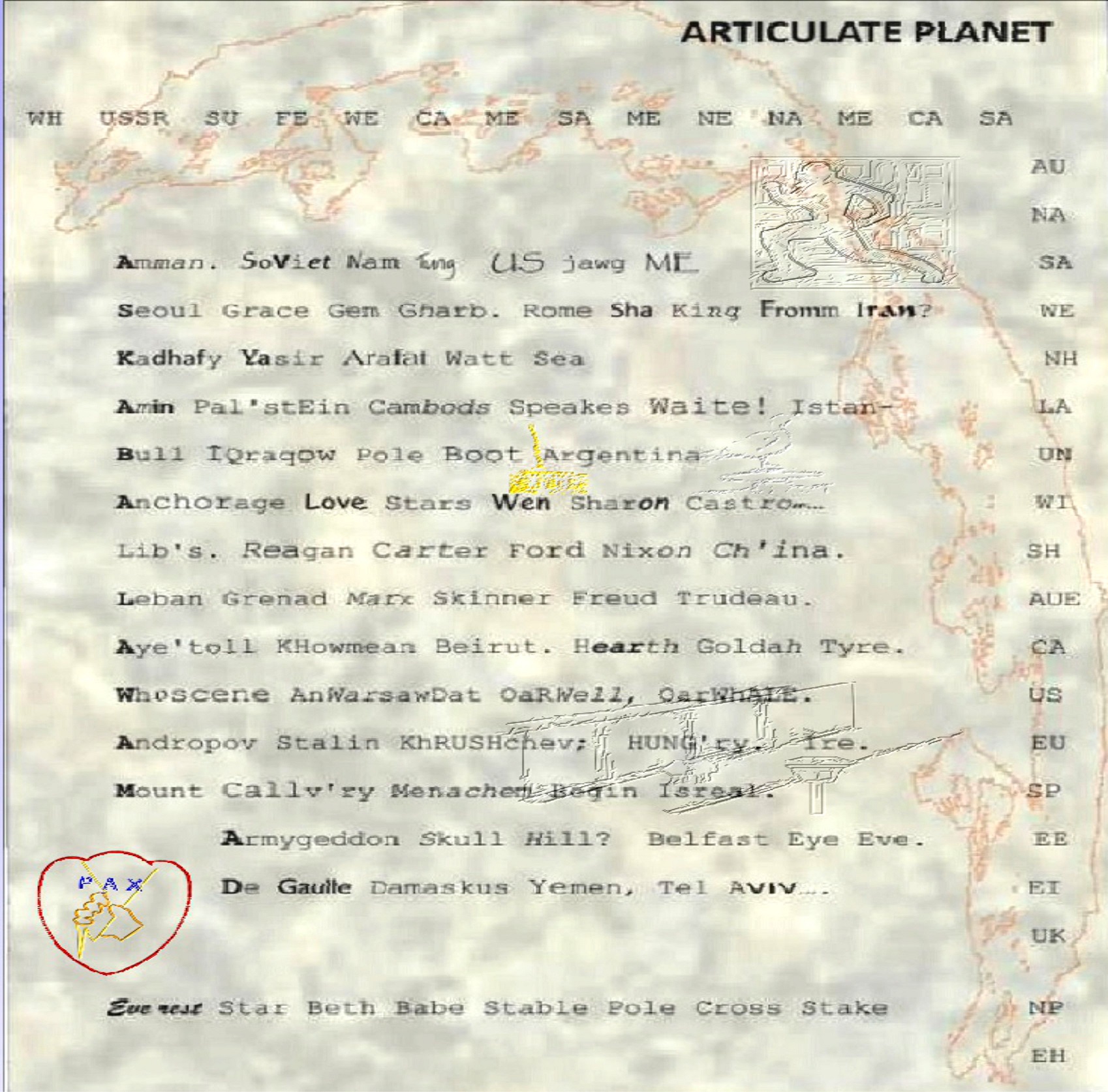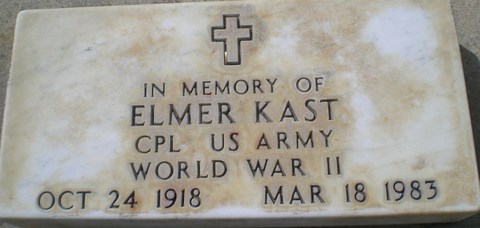Thinking Earth Sonnet
:
In 1981, the idea of composing a sonnet using only names of places and people started with a draft. Each name had to have some kind of ironic sense, and the ideas expressed would have some philosophical, if not theological, significance. There should be a general acausal order, but with the iambic style. The cross-connections of names would become as if they were expressing what the planet was thinking and articulating through this symbolic language.
By 1983, each of the 14 lines was in iambic pentameter with the classic rhyme format. As the years and decades passed, the world at large seemed to reflect the same themes. For example, the phrase “IQrackow Pole Boot Argentina” for my subjective intent and knowledge, would involve manifold references: Iraq, Krakow (Poland), the Polish Pope, Boot for Italia (Italy), and the “shoes of the fisherman” with an ironic intent; “Argentina” did reflect a expectation that the cardinal from Argentina would become Pope.
It did not happen that way. Instead, Pope Benedict (meaning ‘the Good Word’) was chosen. I suppose it was disappointing for me. I actually believed for all the effort that it was the Word of the Holy Spirit moving the world.
I did complain by questioning the Spirit, Why should I have written it thus if it were not true; itis no longer the Truth. As if radioactive decay were occurring, at that inevitable given moment to appoint the time and place, there was news that a lightning bolt had struck the Vatican and that Pope Benedict had announced his retirement. He had lived rather lavishly, and I had wondered if the lightning were some kind of nature’s expression about what a holy cosmic act is when judging our Vatican stage.
The vote to install the cardinal from Argentina also came with a remarkable coincidence. A seagull landed on the chimney when the pope named after St. Francis was chosen.
At the completion of the poem, the Russian Andropov and American Ronald Reagan were in office. So, when the line “Andropov Stalin Khrushchev” appeared to mirror the fall of the Berlin Wall, I felt another sense of the world as a whole.
At one time there were remarks on public radio about how thinktanks can choose a poem by a carpenter and rally around it. I suppose that I took that kind of rationale for how the poem expressed itself.

Do you have your own story to share?
We invite you to join our global community by sharing your own story of a meaningful coincidence. It could be wondrous, funny, curious, unexplained, deeply profound, or anything in between! If you have more than one story to share, please create a separate story entry for each. Each story is limited to a maximum of 300 words.
View All Story Forum Posts
See more stories from around the globe of meaningful coincidences, synchronicity and serendipity!




